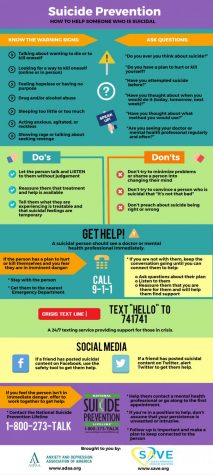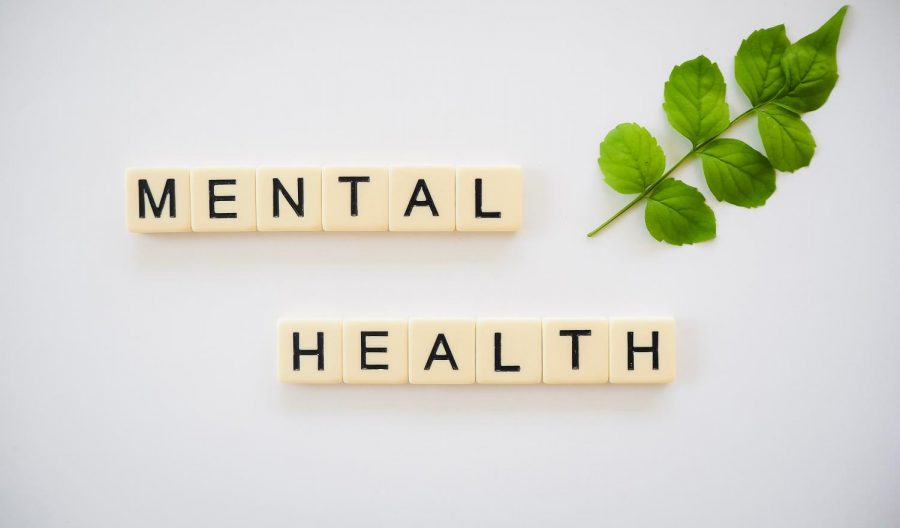Mental Health: How, When and Where
According to a report from late June, in the midst of a pandemic that has drastically changed our way of life, Mental Health First Aid found that 40 percent of U.S. adults reported struggling with mental health or substance use. The most common mental illnesses in the U.S. are anxiety disorders.
Within the same report, suicide is the second-leading cause of death among people aged 10 to 34 and is the tenth leading cause of death in the United States.
These startling statistics show a mental health crisis during a global pandemic that needs to be understood and addressed.
What is Mental Illness?
Mental illness is different from mental health. Mental Health is about emotional, psychological and social well-being, whereas mental illness is an illness that affects the way people think, feel and interact with others and there are many different conditions.
The mental illness conditions that come first to many people’s minds are depression and anxiety, but there is also schizophrenia and other psychotic disorders, eating disorders and addictive behaviors. Click here to learn more about different disorders and their possible causes. An accurate diagnosis can only be determined by a mental health professional.
Living with mental illness can affect all aspects of one’s life. Medication or therapy is typically the way mental health issues are managed, but a combination of treatments is often utilized and treatment looks different for everyone.
EvCC counselor Earl Martin says, “new learning modality change, social isolation, financial strains, uncertainty and fatigue with less social and academic support” are among the many stressors that have increased mental health issues in EvCC students.
What are the symptoms?
The symptoms vary depending on the illness. The generic signs and symptoms are feeling sad or down, confused thinking or reduced ability to concentrate, excessive fears or worries, extreme feeling of guilt, excessive anger, hostility or violence and suicidal thinking.
Symptoms for eating disorders can consist of binge eating, excessive concern over weight, excessive weight loss, excessive exercise, eating in secret, and expressing depression, disgust or guilt about your eating habits. For in-depth symptoms of specific eating disorders, you can go here.
There are many different classes of mental illness, and symptoms differ from person to person. The list of symptoms above is not a comprehensive one.
Where to go for help?
If you need help, there are a variety of resources. Whether you need to talk to a friend or seek professional counseling, opening up about how you feel can make all the difference. You can also reach out to your primary care doctor or a mental health specialist.

Messages from fellow students
Angie Krutiy says, “Just be strong and be patient. God is on your side.”
“Understand that you are not alone and talking to anyone about it can help.” Isabella Krausz continued by saying, “We all have feelings and if you aren’t feeling 100 percent, it’s okay to say that and to want to do something about it.”
Taylor Sether says, “Be kind to yourself. Cut yourself some slack. You can’t be perfect all the time, in fact, no one can.”
EvCC Counselor Earl Martin says, “Counselors encourage students to seek and nurture support both from one’s community and family network as well as professionally trained counselors.”
In September, Active Minds surveyed 2,051 high school and college students about the impact COVID-19 has had on their mental health. About 75 percent of respondents reported their mental health had worsened, worsened somewhat, or worsened slightly since the beginning of the pandemic.
If you are also feeling the strain from living in a pandemic, there are many resources for you to get the help you need. If you want to talk to a counselor, EvCC counseling appointments are available by emailing [email protected].
There are also several community agencies in our area that can provide help. Martin says, “Typically, we suggest people explore any provider referrals and payment coverage options and/or limitations with their healthcare insurance provider.” Martin also shared that SeaMar Everett Behavioural Health and Compass Mental Health are two affordable counseling providers that have been established locally.
If you are in a life-threatening emergency call 911.
If you are in a crisis text “Heal” to 741741.
For emergency counseling, referrals or assistance these numbers are available:
Snohomish County: 800-584-3587
King County: 866-427-4747
If your mental health worsens and you begin to feel suicidal please call 800-273-8255 or go to suicidepreventionlifeline.org/chat.

What living person do you admire?
I most admire my mom. She has been such an inspiration to me my whole life. She has always tried to be the best role...









